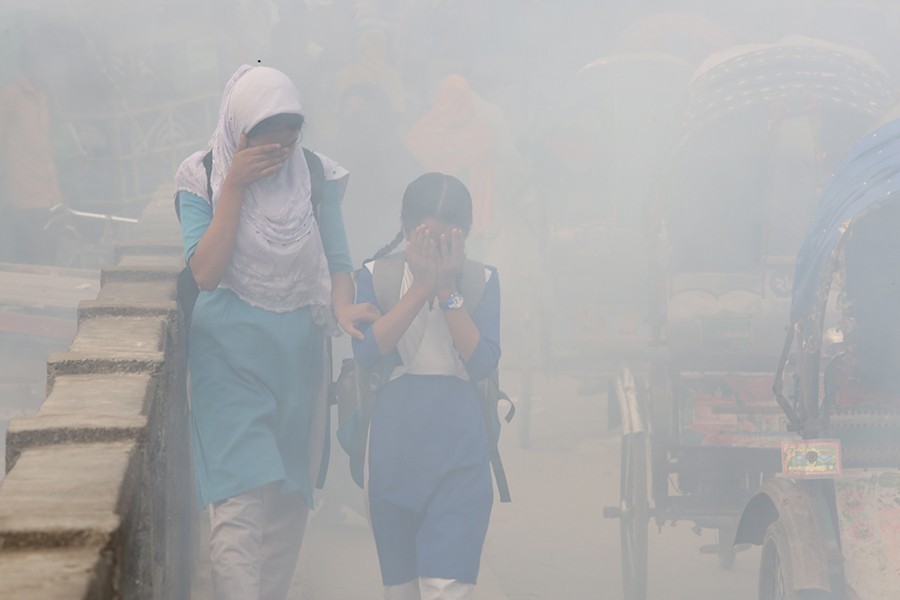The month of mild cold by night --- i.e. November, begins tomorrow. The bouts of monsoon rains are almost over --- except for abrupt and brief spells of shower. In a short time, the urban Dhaka is expected to be fully free of the rain and mud-related woes, and, of course, the scourge of water-logging.
In spite of the sensuous feeling provided by the mild winter, the Dhaka residents cannot find themselves fully free of the seasonal woes. The three months of November, December and January remain dominated by the much-dreaded dust. As a result, the physical comfort coupled with a mood of feel-good evaporate for many people once they come out of home. The city air remains filled with blackish and yellow dust. If one happens to be on a dirt road, or dilapidated street, they are set to be covered with layers of this pesky dust. Besides, gusts of wind whip up dried soil particles. Few of the passersby are aware of the fact that these dust blows carry many a viral agent. They also become noxious fumes leading to damaging impacts on children and the elderly. The organ which remains most exposed to these hazards is the lung. The respiratory tracts of children and young boys and girls also remain vulnerable to various dust allergies.
Fortunately for Dhaka, the intensity of the Covid-19 pandemic has started being on the wane. At least for now. The disease has the proven links to dust-laden and virus-filled air. And Dhaka remains buried under layers of dust. There are a lot of active sources. At the moment, the digging work being carried out for the piling of the metro rail viaducts and stoppage constructions is considered a common source of earthen dust. Sprinkling of water, removing the mounds of dry soil or covering them with heavy tarpaulin can alleviate the scourge to a great extent.
At the advent of the relatively dry winter, the Dhaka people these days start bracing for a series of many environmental ordeals. In the olden times of winter, it was dewdrops on leaves and flower petals in the morning which would welcome people for a day. But trees are vanishing fast as they continue to be felled, thus making way for dust to fill the air.
A terrible aspect of the pre-winter and winter dust in Dhaka and its outskirts is its terrible impact on sickly people. Every year, hundreds of aged people become bed-ridden upon being attacked by various forms of dust pollution.
Thanks to the long shutdown prompted by the Covid-19 pandemic this year, various types of utility-related digging work, especially those related to the metro rail construction, witnessed suspension. The 18-month-long absence from work by workers and technicians, coupled with occasional bursts of activities, could not yield any desired results. This uneven pace of work has evidently slowed down the implementation of the metro rail project.
In order to finish the job at the earliest, a race against time on the part of the authorities could be noticed at the moment. As a result, a messy situation and a lack of coordination are feared to ensue. In the phase of the frenzied digging work in order to make up for the time lost may add to the people's woes. Dominant of them is the menace of air pollution. What's needed now is a thorough appraisal of the prevailing situation. The pandemic's outbreak is now a universal scourge. Without blaming anyone for the pandemic-prompted dislocations, resumption of the massive projects on a well-thought-out plan ought to be a pragmatic way out. Still, the formation of a separate dust control urban project can be among the fresh imperatives.


